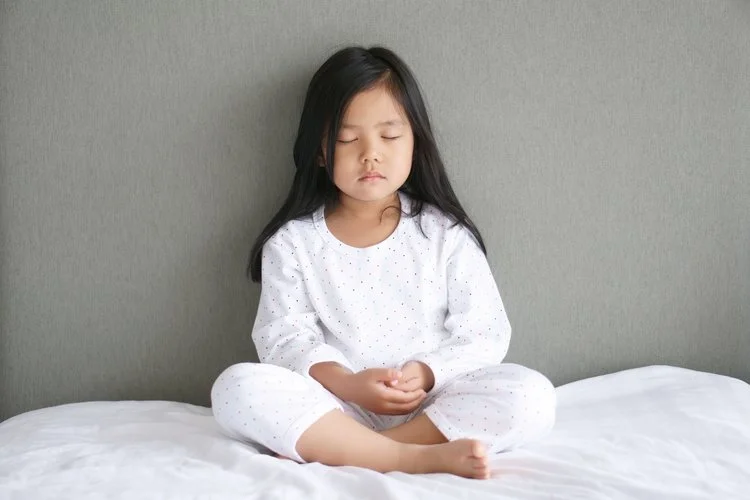The Connection Between Emotions and Immunity: Essential Oil Solutions
When anxiety, stress or depression hit, the body responds, and not exactly in a good way. Emotional stress will release cortisol, the most commonly mentioned physical reaction, which in turn causes inflammation and free radicals, both damaging on several levels to organs and functions within the body. Stress, anxiety and the fight or flight response are responsible for pre-mature aging and damage to skin, especially evident in the breakdown of the skin’s protective lipid-barrier. Migraines, cardiovascular issues and weakened immunity are on the list of bodily harm caused by stress and anxiety. Essential oils combined with meditation and intention practices help to resolve, or at least manage, stressful times and support healthy immunity.
The solution, stop stressing
That’s a joke, right? Well, not really, though it is an obvious “easier-said-than-done” statement. Now, hold on. Thinking it’s difficult is the kind of attitude that may actually stimulate the situation, the stress. And it’s counterproductive if the approach begins with the idea that it’s hard to do. It is possible and could be easier than anticipated to chill the anxiety. It’s a thought process. That’s pretty much what stress is, thinking and self-talk, if we don’t include environmental or physical stress. Controlling thoughts would then be the process for changing the response to stressful situations.
How emotion effects the immune system; the sciencey stuff
This can be both a good and bad thing. Negative emotions, stress, depression, anxiety, do have a negative impact on health, as previously mentioned. Positive emotions, love, joy, happiness, have, well, a positive outcome on health and immunity. How simple is that? Be positive, be healthy. Yes, that is scientifically evaluated to be factual.
Immunosuppression has been reported in human subjects who experience symptoms of anxiety and depression
Immunosuppression has been reported in human subjects who experience symptoms of anxiety and depression in response to situations such as examinations, bereavement, separation, and divorce. The main findings in neurobiological abnormality resulting from anxiety and depression is an elevation of cortisol. There’s even a name for this, hypercortisolemia, which is suggested as a possible explanation of reduced immune function.
There’s really a bunch of physiological stuff going on during the stress response, that includes corticotropin-releasing factor (CRF) that regulates the hypothalamic-pituitary-adrenal (HPA) axis; the release of glucocorticoids from the adrenal cortex; and mediation, in part, by brain stem noradrenergic neurons, sympathetic andrenornedullary circuits, and parasympathetic systems (Smith SM, et al. 2006). Yeah, your body def physically reacts to emotions.
The HPA axis is a major player in how the body reacts to anxiety and depression. Anxiety is accompanied by an activation of the HPA axis, effects the neuroendocrine system (hormones) and the process of adaptation. The HPA axis is proposed as the link and common path between the central nervous system (CNS) and the immune system shown in studies of depressed patients having a lower percentage of helper T-lymphocytes (Kyung Bong Koh 1998).
As a therapist this info is good to know. It not only directs you to use systems and essential oils to relieve the emotional issues, but also allows for treatment suggestions to address the physical symptoms, such as inflammation, immune support and other related symptoms not mentioned above that include eczema, viral outbreaks (herpes simplex 1 and 2) and autonomic imbalances (respiratory, cardiovascular and digestive).
A thing called Trait EI
KV Petrides introduced the theory of Trait Emotional Intelligence (Trait EI) which “describes our perceptions of our emotional world: what our emotional dispositions are and how good we believe we are in terms of perceiving, understanding, managing, and utilizing our own and other people's emotions” (Petrides et al., 2018). Basically, this is the self-perceptions of your emotional abilities, an intrapersonal construct, and the perceptions of your internal world. Having good inner communication and self-awareness is key to controlling stress and anxiety.
The immune response can be modified by the state of mind.
Meditation, of course
There are many self-help practices that do relieve anxiety and emotional tensions. Meditation tops the list and, as many health practitioners see it, including myself, is a must-do to achieve a positive mental state. Don’t stress over meditation. That kinda defeats the purpose. Avoid thinking that you can’t do it, or aren’t good at it, or can’t get your mind to be silent, which isn’t really how it works anyway. Meditation is a focused mind, not necessarily a quiet mind.
The immune response can be modified by the state of mind. This is shown by studies with meditation (Smith et al. 1985), hypnosis (Black et al. 1963; Howard R. Hall 1982), and conditioning (Ghanta et al. 1985).
Tools for thought
There are tools, or methods, that help to control and alleviate mental tension and stress. My recommendation, of course, is to use essential oils as the main tool in the positive thought-building tool kit. With essential oils there are two main levels of interaction, olfactory and physiological (pharmacological or physical), that result in a positive mental outlook and a healthy body. Essential oils work through the olfactory system triggering and creating an emotional response, often associated with scent related memory-emotion. The olfactory response is also physical, which also is directing emotion. Scent association will release neurotransmitters and hormones that produce a physical response in the body, such as oxytocin (Tadokoro, Yuriko, et al, 2017; Ogata, Keizaburo, et al 2020).
Essential oils also have their specific therapeutic properties known from the chemical structure or shared use of the oils. The more you know about the essential oils you use, the more precise you will be in addressing the intention.
Essential oil lifestyle system
The behavioral modification systems I’ve developed using essential oils (access them here) are ideal in supporting emotional balance while stimulating healthy immunity. Many of the oils studied for their ability to increase healthy immune function are also known for emotional balance, such as frankincense, bay laurel and holy basil.
When facing an anxious situation or following a stressful event, just smell your oil blend and breathe, slowly in and out, while focusing on your intention to be calm and stress free
In this system you have an intention. The intention is a focused thought of what you want, along with the feeling that goes with it - feel the emotion of your intention. This will be the mindset that replaces the stressful thoughts. This is an important piece of the systems I’ve developed. If you find yourself stressing over lack of confidence, the new mindset, thought or intention, is you have confidence or strength in all situations. If fear is an issue, create a mantra for intention that gives you the ability to override your fears. This part of the system requires more instruction. There are many self-help ideas out there. I’ll be writing about this soon.
The system I’ve developed creates an emotional memory with a blend or oil you choose. Once this memory bond with the scent is created, the essential oil can be carried around to help reduce the tensions or stress of the day, keeping your body in balance and immunity strong.
Here’s an example of a 5 oil blend that will help support a healthy immune system and have known properties for lowering stress or reducing an anxious fight or flight response.
The application technique can be whatever is most suitable to your purposes, a spray, balm or massage blend. This formula is for a 15 mL (half ounce) roll-on (and would work for any 2.5% to 3% essential oil blend in a 15 mL bottle with a carrier).
Add these oils to your 15mL roll-on bottle:
Vetiver - 1 drop
Frankincense - 3 drops
Bay laurel - 1 drop
Cape Chamomile - 2 drops
Grapefruit - 2 drops
Add jojoba oil as a carrier to fill.
At first ONLY use this blend in a quiet setting, during meditation or prayer, or just sitting in a comfortable peaceful place for at least 15 minutes.
With palm facing down, press the roller of the essential oil blend on a point at the webbing between your thumb and index finger (or, if not in a roll-on, press a small amount with your finger).
Massage this point with your finger(s) for five to 20 seconds, taking slow, deep breaths.
While doing this either repeat a mantra such as “I am calm and peaceful and able to handle any stressful situations,” or focus on your intention of being stable and calm.
Do this at least 5 days in a row before carrying the blend with you during your day. For more dynamic results repeat this for up to 10 days before carrying the blend with you.
This will establish an emotion-memory with the fragrance. Once this has been established, carry the roll-on with you throughout the day. When facing an anxious situation or following a stressful event, just smell your oil blend and breathe, slowly in and out, while focusing on your intention to be calm and stress free. Use the roll-on pressing the same area between thumb and index finger, repeating, silently or out loud, your mantra or intention. You can also press the point between your eyebrows which also relieves tension and stress
References
Kyung Bong Koh, Emotion and immunity. Journal of Psychosomatic Research Volume 45, Issue 2, August 1998, Pages 107-115
Smith SM, Vale WW. The role of the hypothalamic-pituitary-adrenal axis in neuroendocrine responses to stress. Dialogues Clin Neurosci. 2006;8(4):383-395.
Black S. Inhibition of immediate-type hypersensitivity response by direct suggestion under hypnosis. Br Med J. 1963;1(5335):925-929.
Petrides, K. V., Sanchez-Ruiz, M. J., Siegling, A. B., Saklofske, D. H., and Mavroveli, S. (2018). Emotional intelligence as personality: measurement and role of trait emotional intelligence in educational contexts. Emotional Intelligence in Education. Integrating Research With Practice, eds K. V. Keefer, J. D. A. Parker, and D. H. Saklofske (Cham: Springer) 49–81.
Howard R. Hall Ph.D. (1982) Hypnosis and the Immune System: A Review with Implications for Cancer and the Psychology of Healing, American Journal of Clinical Hypnosis, 25:2-3, 92-103
Smith GR, McKenzie JM, Marmer DJ, Steele RW. Psychologic Modulation of the Human Immune Response to Varicella Zoster. Arch Intern Med. 1985;145(11):2110–2112.
VK Ghanta, RN Hiramoto, HB Solvason and NH Spector. Neural and environmental influences on neoplasia and conditioning of NK activity. J Immunol August 1, 1985, 135 (2) 848-852
Tadokoro, Yuriko, et al. "Changes in salivary oxytocin after inhalation of clary sage essential oil scent in term-pregnant women: a feasibility pilot study." BMC research notes 10.1 (2017): 1-7.
Ogata, Keizaburo, et al. "Lavender oil reduces depressive mood in healthy individuals and enhances the activity of single oxytocin neurons of the hypothalamus isolated from mice: A preliminary study." Evidence-Based Complementary and Alternative Medicine 2020 (2020).




